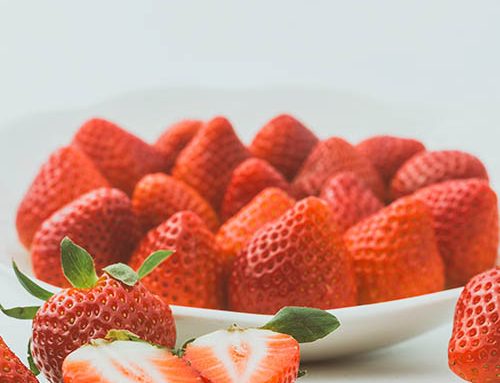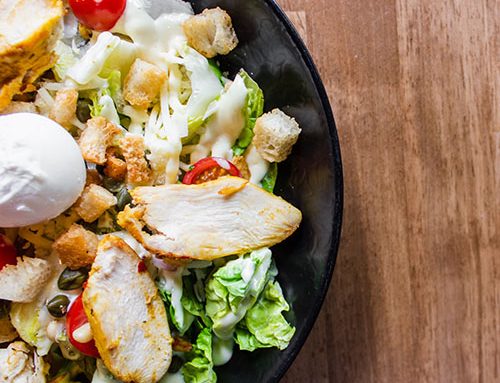Main Minerals for Immunity from COVID19
Coronavirus transmits through person-to-person contact, via droplets passed through coughing or sneezing, and through contaminated surfaces. Your immune system will determine how well you can fight the infection. It is a complicated defence system to protects you from disease. The immune response is fundamental to COVID-19′s severity. A study (1) shows that COVID-19 triggers an overreaction of the body’s immune system called a cytokine storm. More prevalent in those with compromised immunity (due to age or illness, medication or genetic factors) Cytokines are proteins released by many cells in the body, including the immune system they synchronise the body’s response against infection and trigger inflammation. This has a knock-on effect in the body, causing respiratory distress and potential shutdown of multiple organs. Here are some ways the main minerals for immunity from COVID19 can help support you in these uncertain times
The role of magnesium in immunity from COVID19
- Strengthens the immune system as an immune modulator. It supports activity for the formation of antibodies, immune response and heightens cells protection from microbial, bacterial and viral attacks.
- Magnesium restores good sleep habits and aids restful sleep. Surprisingly giving the immune system time to recuperate, just as much of our body restores when we sleep. Chronic sleep loss makes the flu vaccine less effective by reducing your body’s ability to respond.
- Magnesium reduces stress and anxiety, people under stress have low magnesium levels. Magnesium blocks the action of the stress hormone adrenaline and calms anxiety. (Epsom salt bath can help via inhalation)
- Magnesium promotes better lung health.High dietary intake is linked with better lung function, and a reduced risk of airway hyper-reactivity like wheezing. This can be extrapolated to current times as well, as magnesium chloride interacts with the cell itself, detoxifying the core.
Factors affecting magnesium
Renal disorders, Diabetes
Gastrointestinal disorders; Prolonged diarrhoea, Crohn’s or celiac disease.
Diuretics may result in increased urinary loss of magnesium.
Ageing, Alcohol consumption
Signs of low magnesium
- Muscle cramps twitches, restless leg syndrome
- Insomnia or feeling unrested after sleep
- Anxiety or panic attacks
- Insulin resistance / diabetes
- PMS and cramps
- Lack concentration and brain fog
- IBS
- Headaches or migraines
- Inability to cope with stress
- constipation
Food sources
Black beans, edamame beans, lentils , Spinach, kale, brazil nuts, flax, pumpkin and chia seeds. Fish; mackerel salmon halibut, Grains; oatmeal whole wheat, buckwheat quinoa and dark chocolate
The role of zinc in immunity from COVID19
Zinc is known as the gate keeper of the immune system, plays a central role in regulation and crucial for normal development and function of cells. Deficiency is rare but mild deficiency is common.
- Antioxidant; protection of cells from oxidative stress, damage to cells from normal body processes and accelerated by pollution and poor diet.
- Antiviral; interferes with the viral life cycle; loss of infectivity, inhibition of the entry of the virus and replication.
- Nutrient, vitamin A and fatty acid metabolism crucial for immunity
- Acid/ alkaline balance; regulation of the pH of the body’s extracellular fluid
Factors affecting zinc
Medications – steroids, oral contraceptives and antibiotics, Iron supplementation.
Pregnancy is associated with low levels due to increased circulating hormones in the body.
Nutrient malabsorption syndromes put people at a greater risk of zinc deficiency.
Histamine excess or intolerance as zinc is required for storage of histamine
Food allergies and intolerances may prevent dietary provision
Signs of low zinc
- Frequent infections
- Poor skin tone
- Mood swings and Energy dips
- Fertility problems
- Loss of appetite
- Loss of taste and smell
- PMS
Food sources
Oysters (richest source), red meats, poultry, cheese (ricotta, Swiss, gouda), shrimp, crab, and other shellfish. Other good, though less easily absorbed, sources include legumes (especially broad beans, black-eyed peas, pinto beans, soybeans, peanuts), whole grains, miso, tofu, brewer’s yeast, cooked greens, mushrooms, green beans, tahini, and pumpkin, and sunflower seeds, pecan nuts, split peas, oats, almonds, buckwheat.
The role of Selenium in immunity from COVID19
The role of Selenium is important as it supports several systems; the endocrine, immune, and cardiovascular systems. The thyroid, part of the endocrine system, is the organ with the highest concentration of selenium per weight of organ tissue.
- Supports the thyroid hormone
- DNA synthesis where cells can replicate for growth and repair
- Fertility
- Anti-viral – protecting from infection
- Antioxidant -protecting cells from damage
Factors affecting selenium
- Thyroid diseases or nodules
- Weakened immune function illness or medication e.g Cancer
- Pregnancy
- Digestive disorders
- Low levels in soil where food is grown
The amount of selenium in foods depends on the amount of selenium in the soil and where the food was grown. The amount consumed in Europe is decreasing. Rain, evaporation, pesticides, and pH levels can all affect selenium levels in soil. A review predicts that the effects of climate change will gradually decrease soil selenium concentrations in many parts of the world.
Signs of low Selenium
Infertility in men and women
- muscle weakness
- fatigue
- mental fog
- hair loss
- weakened immune system
Food sources
About six to eight brazil nuts, contains about 544 mcg. Many whole grains and dairy products, including milk and yogurt, cottage cheese are good sources of selenium. Pork, beef, turkey, chicken, fish, shellfish, and eggs contain high amounts of selenium.
In Summary we staysafe and stayalert by maintaining ‘social distance’ your immune system can stay calm with magnesium, protected by selenium and regulated ted by Zinc! This can bring reassurance as we hope and pray for these times to pass, soon.
There is a lot of general free advice available especially at the moment , do you want to sort out fact from fiction? Personalised nutrition is not a one size fits all approach but gets to the root the cause of symptoms. I can help you on this journey with bespoke nutrition and lifestyle recommendations for protecting and balancing your health. For more information request a Discovery Call See my latest Offer
#nutritionist #healthylifestyle #wellbeing #nutritionaltherapy #midlifevitality #nourishinsideout #coronavirus #staysafe #stayhome #immunity







